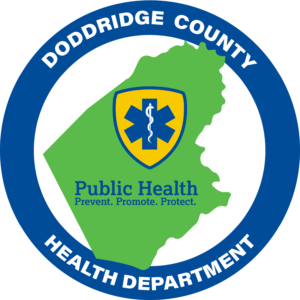February is American Heart Month
Take Action for your Heart:
Get Started!
Heart disease is the leading cause of death in the United States, but it can often be prevented. Adopting a heart-healthy lifestyle can help you reduce the risk of heart disease and its risk factors. Take Action to protect your heart by following these tips.
*Get Enough Quality Sleep:
Lack of sleep or getting poor quality sleep increases the risk of having high blood pressure, heart disease, and other medical conditions.
-Try to aim for 7-9 hours of sleep a night
-Go to bed and wake up at the same time each day
-Exercise regularly, but not within 2-3 hours before bedtime
-Avoid caffeine and nicotine
*Eat Better
A flexible and balanced eating plan can help lower your high blood pressure and improve your cholesterol.
-Follow the Dietary Approaches to Stop Hypertension (DASH) eating plan, which can help you create a heart-healthy eating lifestyle for life.
-Read nutrition labels to pick the food lowest in saturated fat, sodium, and added sugars.
-Try a mix of lean cuts of meat, eat fish once or twice a week, and eat two or more meatless meals each week
-Consider whole fruits, dried fruits, unsalted rice cakes, fat-free and low-fat yogurt, or raw vegetables as a snack
*Stop Smoking
Any amount of smoking, even light or occasional smoking, damages your heart and blood vessels.
-Select a quit date and write yourself a contract that outlines your plan for quitting
-Talk with your healthcare provider about programs and products that can help you quit
-Join a support group. Many hospitals, workplaces, and community groups offer classes to help people quit smoking
-Call 1-800 QUIT-NOW and visit smokefree.gov to get additional support
*Maintain a Healthy Weight
Maintaining a healthy weight is important for overall health and can help you prevent and control many diseases and conditions.
-Choose healthy snacks like fruits, vegetables, yogurt, or nuts, instead of sugary or high-calorie snacks
-Stay hydrated with water as your primary beverage
-Aim for at least 150 minutes of moderate-intensity aerobic exercise (such as brisk walking) or 75 minutes of vigorous-intensity (like running) exercise per week
-Consider keeping a log of what you eat throughout the day
*Be more Active
Getting enough physical activity helps to lower your risk of heart disease and stroke.
-Adults should spend at least 150 minutes (2.5 hours) each week doing physical activity
-Sit less! Take the stairs. Park farther away. March in place or take a walk around the block
-Try muscle-strengthening activities like lifting weights, working with resistance bands, doing sit-ups and push-ups, or some forms of yoga
-If you don’t have a lot of time in your day, try being active for 10 mins at a time. Anything that gets your heart beating faster counts!
*Control Cholesterol
Unhealthy levels of cholesterol can lead to high cholesterol, which increases the risk of developing heart disease
-Try the Therapeutic Lifestyle Changes (TLC) Program which combines diet, physical activity, and weight management to help lower high blood cholesterol and improve heart health
-Eat a heart-healthy diet that is low in saturated fats, as these can raise LDL cholesterol levels
-Limit alcohol consumption. Drinking too much alcohol-more than two drinks a day for men or one drink a day for women-can raise your total cholesterol level.
*Manage Stress
Learning how to manage stress with healthy coping strategies helps improve your emotional and physical health.
-Use relaxation techniques that combine breathing and focused attention on pleasing thoughts and images to calm the mind and body
-Consider mediation, as it can help lower stress
-Take a yoga class to help lower stress and improve mindfulness. It may also offer you a supportive community
*Manage Blood Sugar
Maintaining stable blood sugar levels is crucial for heart health, especially for people with diabetes or those at risk for developing diabetes.
-Eat a diet rich in whole foods, including vegetables, fruits, whole grains, lean proteins, and healthy fats
-Monitor your carbohydrate intake and choose complex carbohydrates, like whole grains and legumes, to help control blood sugar levels
-Talk to your healthcare provider about how often you should check your blood sugar levels, especially if you have diabetes
*Control Blood Pressure
Keep your blood pressure in a healthy range and keep track of your numbers. Blood pressure that’s consistently higher than 130/80 mm Hg can cause serious health problems.
-Have your blood pressure checked each time you visit the doctor
-Use a blood pressure monitor to measure your blood pressure at home and learn how to measure it correctly
-Use a blood pressure tracker to keep a record of your numbers each reading
-If you’re pregnant or planning to be, it’s especially important to keep your blood pressure in a healthy range
For more information about how you can take action to keep your heart healthy, visit hearttruth.gov.
